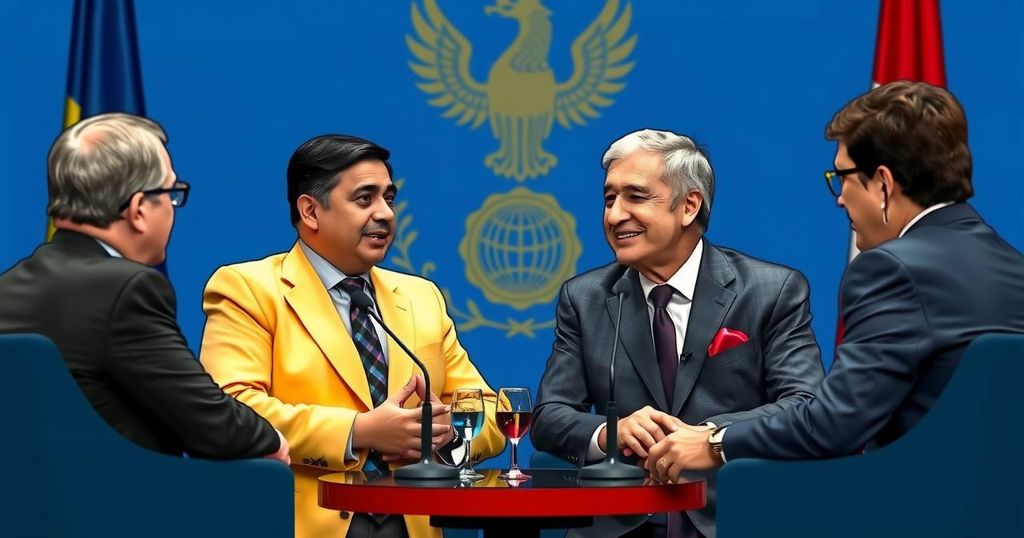Uruguay’s Presidential Run-Off Highlights Commitment to Democratic Stability

Uruguay’s presidential run-off featured candidates Alvaro Delgado and Yamandu Orsi vying for leadership in a peaceful electoral atmosphere. Orsi, the left-wing candidate, faced Delgado of the conservatives after failing to secure a majority in the first round. Both candidates emphasized economic improvements and pledged to respect the election results, highlighting Uruguay’s commitment to democratic coexistence amid a tumultuous regional context.
In Uruguay, the recent presidential run-off election showcased a commitment to democratic practices amidst a politically tumultuous Latin America. Candidates Alvaro Delgado of the National Party and Yamandu Orsi of the Broad Front coalition faced off in a tightly contested election after neither secured a majority in the first round held on October 27. Orsi, who garnered 44 percent of the initial vote, aimed to regain power for the left following the conservative victory in 2019 that marked a significant political shift.
Alvaro Delgado, with only 27 percent in the first round, positioned himself as a stronger contender for the run-off, leveraging support from third-place candidate Andres Ojeda’s followers. Central themes in both candidates’ campaigns included the revitalization of Uruguay’s economy, with Orsi advocating for wage increases for the lower-income demographic, while Delgado promised to streamline bureaucratic processes and enhance trade relationships, notably with China. Each candidate expressed a willingness to uphold electoral integrity and promote a cooperative governance approach regardless of the election outcome.
The election atmosphere was notably calm in contrast to the political violence characterizing other nations in the region. Fernando Pereira, head of Orsi’s coalition, emphasized the importance of valuing democratic coexistence, echoing sentiments of unity and collaboration. Former President Jose Mujica’s support for Orsi likely played a pivotal role in his campaign, highlighting the enduring legacy of leftist governance in the nation. Candidate Ojeda commented on the tranquility of the election, suggesting the peaceful nature of Uruguay’s electoral process stood in stark contrast to regional counterparts.
Uruguay is situated on the southern Atlantic coast and has been recognized for its stable democratic practices, setting it apart from other Latin American nations experiencing political violence and electoral disputes. The latest presidential elections involve a significant run-off contest between two major candidates: Alvaro Delgado from the ruling National Party and Yamandu Orsi belonging to the left-leaning Broad Front coalition. The election’s context is crucial, considering Uruguay’s history of political alternation, marked by a recent shift from the Broad Front’s governance to that of the conservatives in 2019. Furthermore, the legacy of former President Jose Mujica, revered for his humble leadership, continues to influence the political landscape.
The presidential election run-off in Uruguay exemplified a dedication to democratic principles, with candidates prioritizing economic improvement and pledging mutual respect for the election results. While the contest between Alvaro Delgado and Yamandu Orsi was intense, the overall atmosphere remained peaceful, reflecting the nation’s political maturity. This calm election environment serves as a testament to Uruguay’s unique position in a region often marred by disputes, making it a model of democratic stability.
Original Source: www.aljazeera.com







